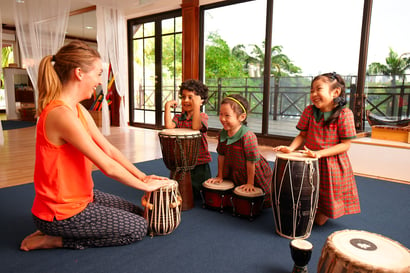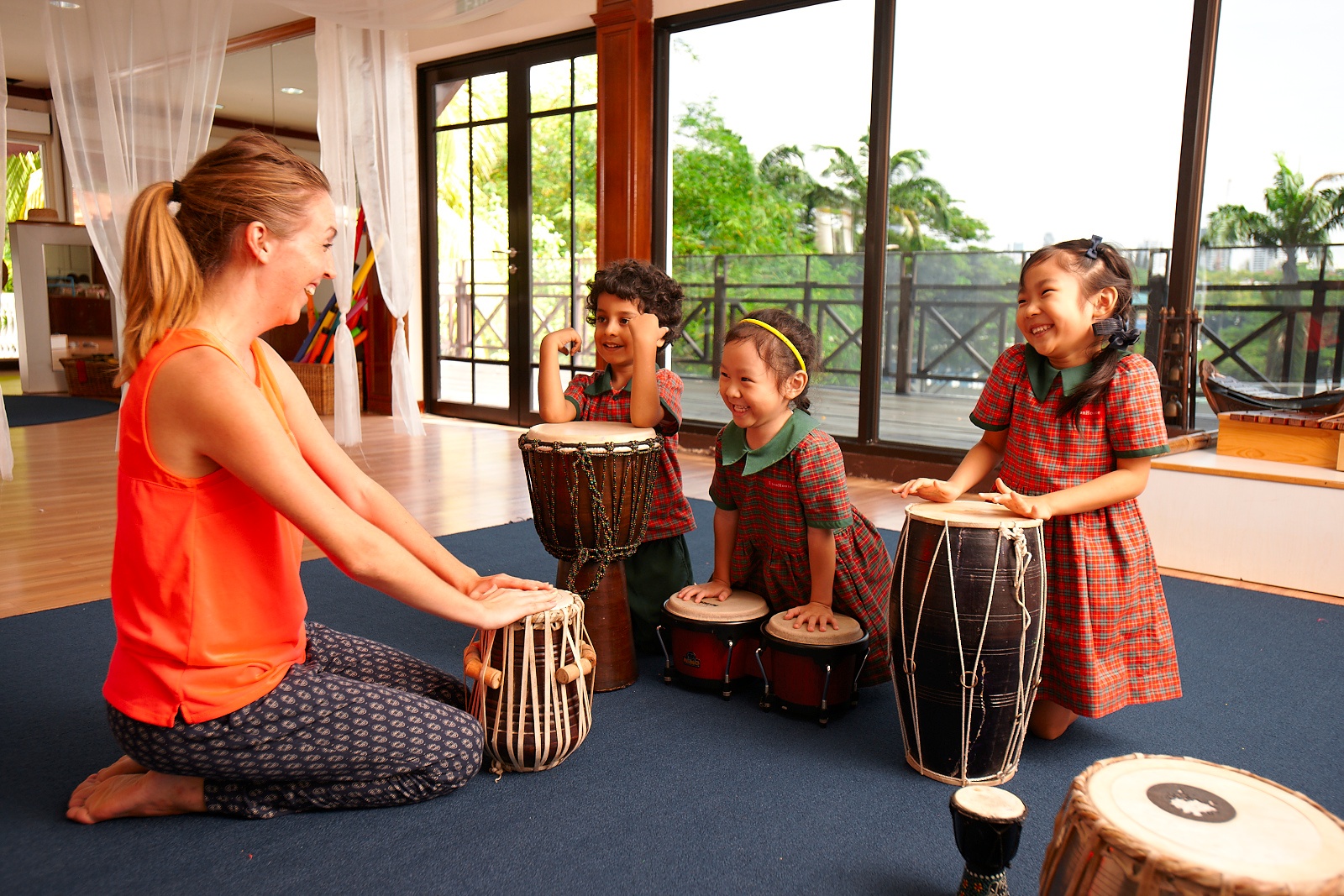
Tina Stephenson-Chin
Previous Executive Director of Pedagogy, Tina oversees Reggio Emilia (Asia) and a range of professional development initiatives. Tina has been an active contributor to popular and academic publications, in Canada and Asia, on a range of behavioral and education issues for the past 10 years. She was previously Senior Lecturer for Middlesex University London and Open University Hong Kong in teacher qualification granting programmes including their Honours B.A. in Early Childhood Studies – the only bachelor’s degree in education from a foreign institution fully-accredited in Hong Kong. She is also a member of the Ontario College of Teachers in Canada and The National College of Teaching and Leadership in the U.K.

Did you know that the most common cause of negative behaviour is not enough time to play?
For children under the age of four, parents are their most important playmates. I have a five-year-old and I spend so much time playing with him that he will be shocked to discover that I do not actually enjoy playing with Lego, or going on a picnic with his stuffed animals. And despite my apparent enthusiasm, my least favourite of all is his favourite games – playing Ghostbusters. Boy, is parenting tough!
But I play with him because it is an investment in his well being and it's good for bonding. If he is whining or being defiant, my first consideration is to think about the amount of positive relaxed time we have shared over the course of that day.
And you know what? His behaviour actually improves after we settle down to play for a little while.
Playing for good behaviour can be a lifesaver in the mornings when everyone is in a rush and has a busy and long day ahead of them. Our mornings have gotten much, much simpler since we started waking up 30 minutes earlier to fit in a short play session before the rush.
Carolyn Webster-Stratton and her wonderful book The Incredible Years has been an important influence on how I promote positive behaviours in my son while we have fun together. What I’ve learned boils down to Praise and Positive Language.
This is how.
Praise is simply the most effective tool we have — It works because it gives a simple reward for a job well done and also gives the child information that this positive behaviour is worth repeating. It even works on adults. Praise helps us feel good about what we have done and provides a natural incentive to do it again. And remember to let the child know what you’re praising him or her for. Just saying, “Good boy!” doesn’t tell him what was good about his behaviour. Instead, say something specific like: “You did a really good job putting away your toys after we were done playing.”
During our play sessions, I make sure to keep my language positive. Instead of saying don't do this, or stop doing that, I say, "Can you please do ..." Reframing language into the positive sends clearer, more structured message. “Don’t run” becomes “walk, please”; “Stop yelling,” becomes, “Indoor voice, please”. This redirects both of us to what should be happening instead of focusing on the negative.
So go forth and play with your child with plenty of praise and positive language!

